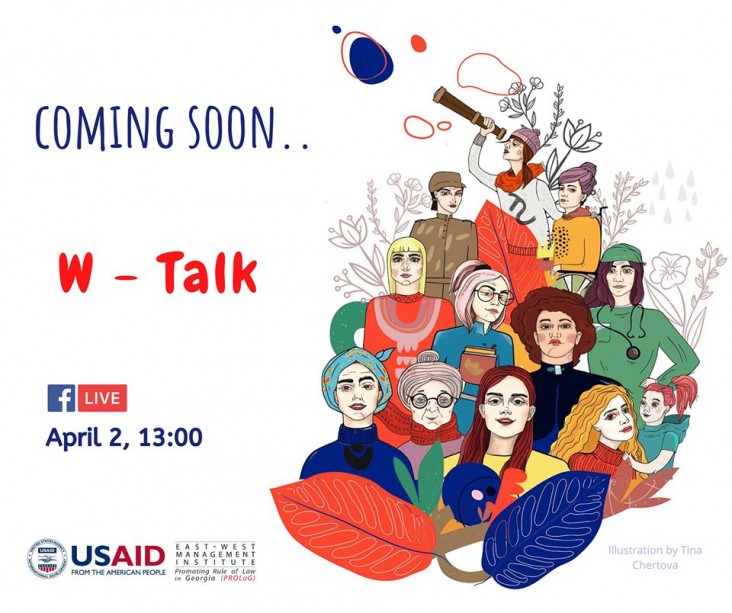Speeches Shim

The COVID-19 pandemic has created challenges for everyone. It has also presented opportunities to reconsider pressing social issues, with USAID/Georgia using digital formats to continue the conversation on women’s empowerment.
In honor of Women’s History Month, USAID/Georgia had planned to unveil a public mural in the city of Marneuli to show support for Georgia’s women and girls and raise awareness about the importance of women’s empowerment. The unveiling of the mural was intended to kick off the Women’s Empowerment Forum, a series of public discussions hosted by USAID’s Promoting Rule of Law in Georgia (PROLoG) program. Panel discussions were lined up with women from different backgrounds (the military, police, judiciary, arts, and media, among others). The speakers were prepared to discuss key issues: overcoming gender-based discrimination, empowering women to participate in the economy and society, and why women’s empowerment is necessary for the success of any society.
Then, the COVID-19 pandemic hit. More than 30 activities planned for Women’s History Month had to be temporarily cancelled due to safety concerns and restrictions put place to prevent spread of the virus. But justice, human rights, and women’s empowerment can’t be put on hold, even during a pandemic. Faced with this unprecedented situation, USAID’s PROLoG program set about finding solutions. After shifting to remote work on March 16, and adapting more of its activities to online formats, the program launched “Women’s Talks,” or W-Talks, a series of online discussions with women leaders.
W-Talks is a series of livestreamed Facebook discussions where women from different professions and backgrounds speak openly about their personal experiences, successes, and the challenges and barriers they’ve overcome along the way. These women empower others by sharing their stories. W-Talks is hosted by Ana Abashidze, a lawyer, human rights activist, and head of the NGO Partnership for Human Rights.
One of the key goals of the W-Talks is to ensure that women’s voices are heard through discussions that are accessible to people of all backgrounds and regardless of their location. During each W-Talk, the audience has an opportunity to ask questions and share thoughts and ideas, with the discussions creating a space for engagement between people with different views. Since April 2, nine guest speakers have participated and more than 130,000 people have watched the livestreams.

Comment
Make a general inquiry or suggest an improvement.